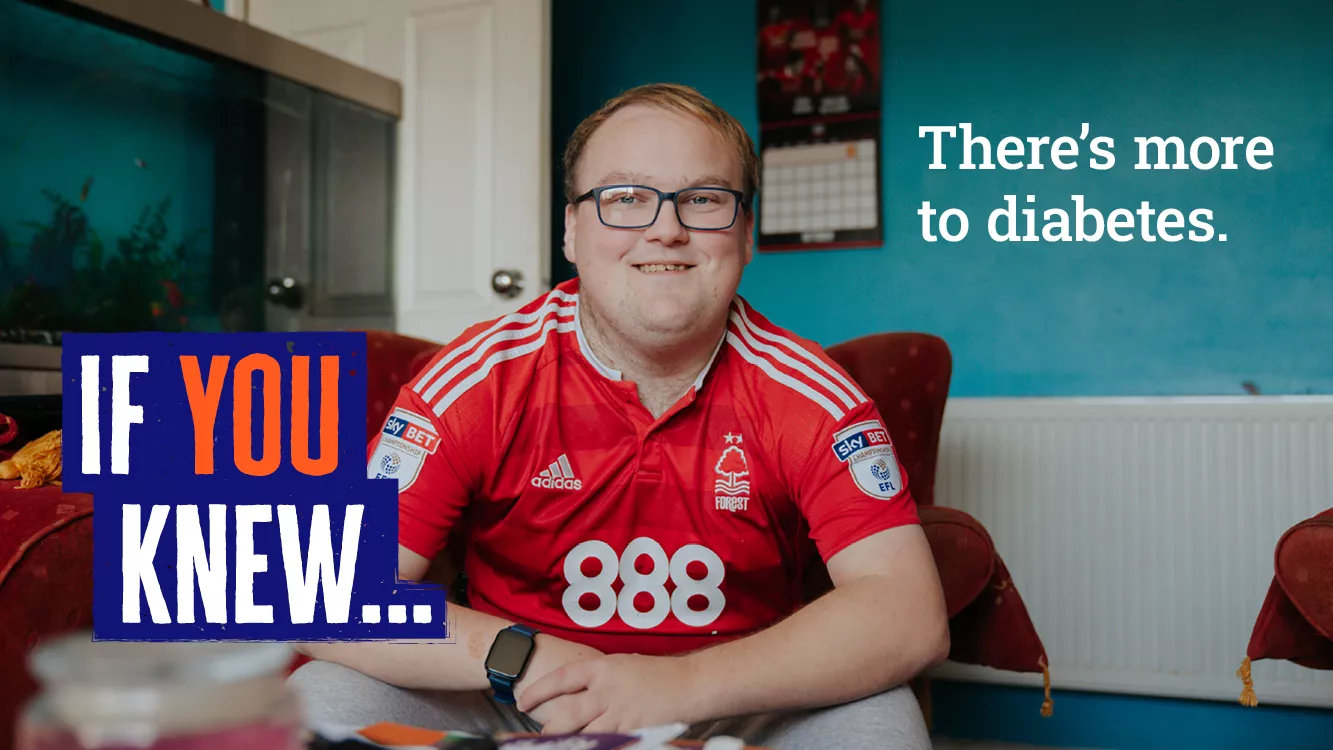
On World Diabetes Day last year, we became one of the first organisations in the UK to sign the global pledge to end diabetes stigma and discrimination, which has now been signed by over 330 organisations worldwide.
Since then, we’ve been doing a lot of work to better understand how stigma (or stereotypes and misconceptions) about diabetes present themselves and how they impact people living with diabetes.
We’re now funding two research projects into diabetes-related stigma, in our biggest investment in tackling stigma to date.
The projects are focused on people living with type 1 diabetes and women who have first-hand experience of gestational diabetes.
If you live with type 1 diabetes, there’s an opportunity to get involved in this research by completing a survey, find out more here.
Stigma has a deeply personal impact
In April this year, we presented our insight to an auditorium full of healthcare professionals and researchers at the Diabetes UK Professional conference, alongside the voices and experiences of people living with diabetes to reinforce the deeply personal impact that stigma has.
The research found that over 50% of people living with diabetes miss healthcare appointments at least sometimes due to stigma, and that 80% have received negative attitudes because of their diabetes. We learnt a lot from this research, and we continue to work hard to understand more about how stigma and how we can address it.
{"preview_thumbnail":"/s3/files/styles/video_embed_wysiwyg_preview/public/video_thumbnails/XPN8nsCzG5A.jpg?itok=Wgux6eF-","video_url":"https://www.youtube.com/watch?v=XPN8nsCzG5A","settings":{"responsive":1,"width":"854","height":"480","autoplay":0},"settings_summary":["Embedded Video (Responsive)."]}
Over the summer, we formed our Stigma Panel – a group of around 20 people living with diabetes, each bringing their own experiences into how Diabetes UK can play the most effective role in tackling stigma.
So far, the panel has reviewed and contributed to our stigma plans for 2025, helped to shape and test resources for volunteers and partners, and some have been sharing their experiences of stigma as part of our campaign this year.
We’re also continuing to learn more about how diabetes stigma impacts people from different backgrounds and cultures. With funding from one of our partners, Abbott, we’ve carried out research into the experiences of people from South Asian, Black African and Black Caribbean backgrounds to better understand the kinds of support and information Diabetes UK can provide to address stigmatising situations.
This week we published more information on the causes of type 2 diabetes, fuelled by years of research we've funded into this area, as we know that helping people to understand the complexity of type 2 diabetes is an important step in tackling the harm and discrimination that comes from stigma.
Our plans for 2025
As we look forward to 2025, we’ll be able to publish the results of that research, start to share more information about the language we can use to stop perpetuating unhelpful stereotypes and build our collective voice for change in how diabetes is perceived in wider society.
We will create resources and information for friends, families and colleagues, as our research so far has told us that these kind of educational resources can help release the burden on people living with diabetes to explain what the condition means for them and what it’s like to live with.
We’ll continue to work with healthcare professionals to ensure that the Language Matters guidance available is at the forefront of people’s minds, as we know that using the right language, especially at the right time (for example, at the point of receiving a diabetes diagnosis) has the potential to have a positive impact on reducing short and long term impacts of diabetes stigma.
To join our collective voice against stigma and to keep informed about our work as it progresses, make sure you’ve told us by heading here to get involved this World Diabetes Day.
